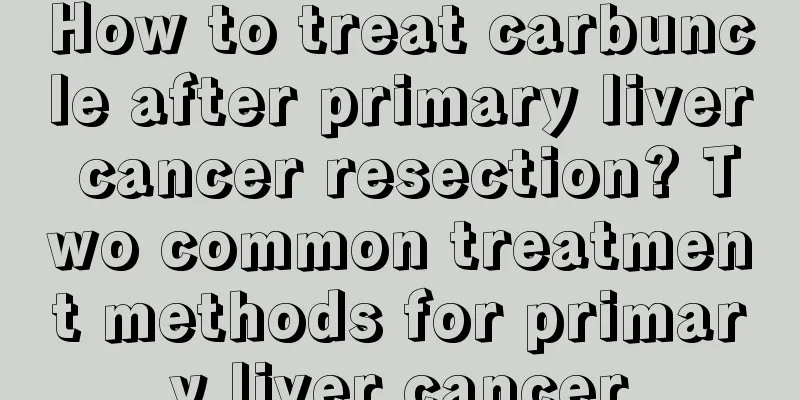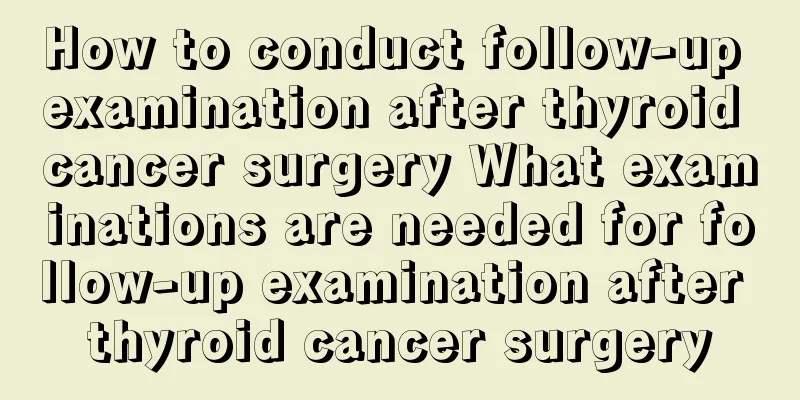What can I eat after gastroscopy? It turns out that I can eat these

|
Although gastroscopy is a common examination in daily life, it involves the entry of an instrument into the human body, so the precautions after the examination must be followed. So what can people eat after having a gastroscopy? Most people don't understand this. In fact, you can usually eat two hours after a gastroscopy, and it must be liquid food. Generally, the patient needs to fast for more than 6 hours before undergoing a gastroscopy. If you are having a gastroscopy tomorrow, you cannot eat breakfast tomorrow. After gastroscopy, you should not eat or drink for two hours. After two hours, you can eat semi-liquid food, such as porridge, noodles, etc., and resume normal diet the next day. Patients who have undergone endoscopic removal of diseased tissue or endoscopic mucosal injection should abstain from food and water for four hours after the operation. You can drink a small amount of warm water after four hours. You must eat semi-liquid food for dinner and three meals the next day, and avoid raw, hard, hot, and sweet food to facilitate wound healing. After a colonoscopy, patients often experience digestive tract reactions such as nausea, vomiting, and loss of appetite. Sometimes people may feel aversion to food, and become irritable and depressed. Therefore, you need to give your stomach some time to correct itself after a gastroscopy. So, what foods should you eat after a gastroscopy? Here are some of the foods you should eat: 1. Eat some easily digestible food, such as: eat more boiled, stewed, steamed food, and less fried food. 2. Eat more lean pork, beef, rabbit meat or chicken and duck poultry. If you hate greasy meat, you can switch to non-meat foods rich in protein, such as cheese, omelets, etc. 3. Eat more vegetables and fruits rich in vitamins and other foods that aid digestion, such as asparagus, kelp, seaweed, onions, garlic, mushrooms, etc. In short, the treatment mainly lies in "nurturing". It is recommended that you pay attention to your life and eating habits. Your diet should be regular, light and easy to digest. Eat less fat, high-sugar, spicy, fried, raw, cold and hard stimulating foods and stimulating drinks such as coffee. Eat more carbohydrates, protein and vitamins. It is important to keep the bowels open. Increase physical exercise appropriately, keep your body and mind happy, and pay attention to rest. |
<<: How to diagnose gastroesophageal reflux
>>: It turns out that there are 9 things to pay attention to after gastroscopy
Recommend
Causes of rib pain when coughing
Colds and coughs are common, but for some people,...
Symptoms of rectal cancer
Symptoms of Rectal Cancer: Symptoms of colorectal...
Which hospital is best for treating nasopharyngeal cancer
Because nasopharyngeal cancer takes a very long t...
Can I get pregnant after having uterine cancer surgery?
Uterine cancer is the most common gynecological m...
What to do if a bug flies into your nose
Everyone should hate insects in life. No matter w...
Pain in the lower left side of the abdomen
Abdominal pain is a very common symptom, but if i...
Are silicone bras harmful to the human body?
Many women choose to use silicone bras in order t...
What are the common factors that lead to liver tumors?
Many factors in life can cause liver tumors. We s...
There are many problems with getting angry in spring. Here are three magic weapons to "extinguish fire" in an emergency
Spring is fire and autumn is dry, so it is easy t...
Successful cases of Chinese medicine in treating gallbladder cancer
Mr. Li is 55 years old this year. In 2004, he was...
Can a brain cancer patient give birth naturally?
Brain cancer is also called intracranial tumor or...
What medicine to take for gastric cancer
What medicine should I take for gastric cancer? 1...
What are some good ways to get rid of acne?
In fact, the growth of acne is not caused by a si...
What should I do if I lose hair after washing it? Wash your hair correctly to reduce hair loss
Although we wash our hair frequently, not everyon...
How to prevent renal hamartoma
To prevent renal hamartoma, you need to develop g...









